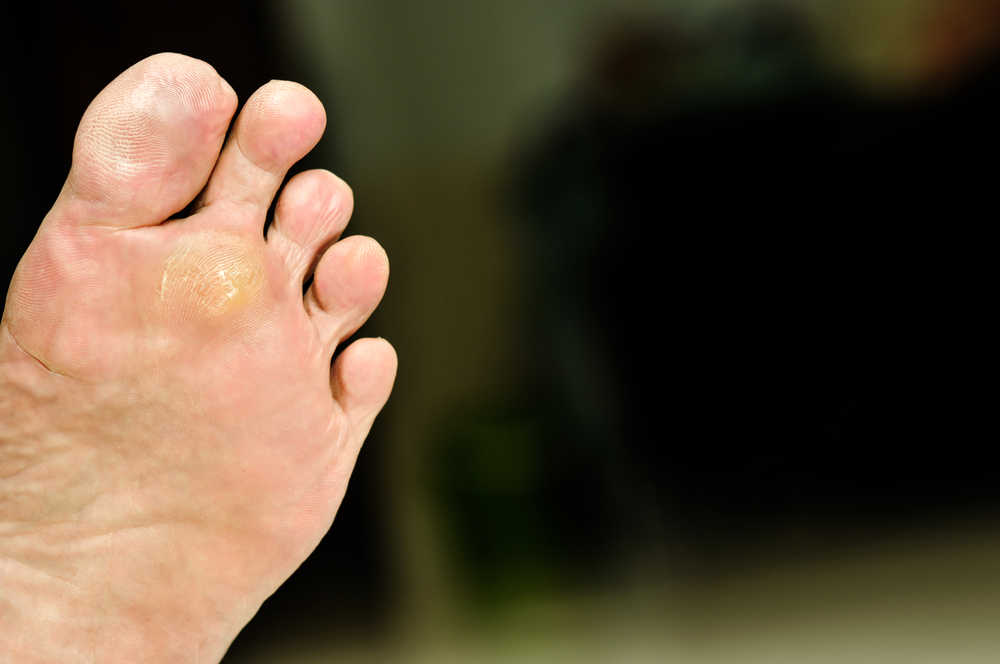
Drexel Hill (484) 521-0233
West Chester (610) 436-5883

Drexel Hill (484) 521-0233
West Chester (610) 436-5883
 To begin treating your corn, it is important to understand what pressure or friction caused its development in the first place. Typically, the main reasons for a corn to form can be from standing for the majority of the day on a hard surface, and wearing tight or ill-fitting shoes which restrict the toes. They may also develop due to previous or existing foot conditions such as a bunion. In order for a corn to go away, the pressure that caused it must first be removed. If this pressure is not removed, the skin will remain hardened and sensitive to the touch. To help prevent this condition, it’s recommended that you dry your feet thoroughly after washing them and apply a moisturizer. Regularly using a pumice stone to remove hardened skin may also help to keep the skin smooth. Most importantly, ensure that your footwear fits properly and comfortably, and provides your toes with an adequate amount of room. To safely remove your corn, it is advised that you consult with a podiatrist for professional care and treatment.
To begin treating your corn, it is important to understand what pressure or friction caused its development in the first place. Typically, the main reasons for a corn to form can be from standing for the majority of the day on a hard surface, and wearing tight or ill-fitting shoes which restrict the toes. They may also develop due to previous or existing foot conditions such as a bunion. In order for a corn to go away, the pressure that caused it must first be removed. If this pressure is not removed, the skin will remain hardened and sensitive to the touch. To help prevent this condition, it’s recommended that you dry your feet thoroughly after washing them and apply a moisturizer. Regularly using a pumice stone to remove hardened skin may also help to keep the skin smooth. Most importantly, ensure that your footwear fits properly and comfortably, and provides your toes with an adequate amount of room. To safely remove your corn, it is advised that you consult with a podiatrist for professional care and treatment.
Corns can make walking very painful and should be treated immediately. If you have questions regarding your feet and ankles, contact the podiatrists of Dr. Siegerman & Associates. Our doctors will treat your foot and ankle needs.
Corns: What Are They? And How Do You Get Rid of Them?
Corns are thickened areas on the skin that can become painful. They are caused by excessive pressure and friction on the skin. Corns press into the deeper layers of the skin and are usually round in shape.
Ways to Prevent Corns
There are many ways to get rid of painful corns such as:
Treating Corns
Although most corns slowly disappear when the friction or pressure stops, this isn’t always the case. Consult with your podiatrist to determine the best treatment option for your case of corns.
If you have any questions please feel free to contact one of our offices located in Drexel Hill and West Chester, PA . We offer the newest diagnostic and treatment technologies for all your foot and ankle needs.
Request a free copy of
Laser Away Foot Pain!
today.
